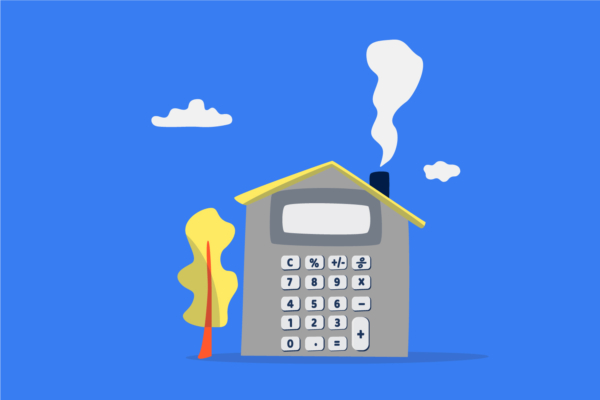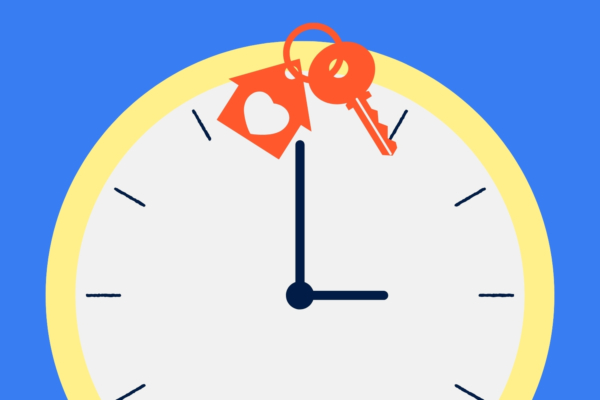
Struggles of a Millennial Homebuyer

If you’re a Millennial struggling to purchase your first home, you’re not alone. A study by Apartment List showed that a whopping 69% of Millennials say that they simply cannot afford to buy a home.
Millennials, which are typically defined as those born between the early-1980s and the mid-1990s, make up about 22% of the US population and account for 21% of discretionary consumer purchases. And when it comes to home buying, Millennials are facing new and different challenges compared to the generations that preceded them.
The Struggle of First-time Home Buying
In the past decade and a half, millions of Millennials have come of age and set out to start their adult lives. As they began to purchase homes, they faced— and continue to face— several distinct obstacles.
Saving for a Down Payment
When buying a house, having the money for a 20% down payment is ideal. The homebuyer will immediately gain equity in the home, enjoy lower monthly payments, and avoid paying for private mortgage insurance.
However, not all Millennials are able to save 20% to buy a house—especially young adults in the beginning of their careers. Data from the Federal Reserve shows that compared to their older counterparts, Millennials control far less of the country’s total wealth. Despite being the largest generation, Millennials only account for 5% of the wealth in the United States. Baby boomers, on the other hand, account for 52.2%.
And though it makes sense for older generations to have more wealth accumulated, Millennials have far less than Baby Boomers had at the same age. One of the largest contributors to this wealth gap is the fact that median earnings are 20% lower than they were in 1980. Though prices of goods and services have steadily increased over the decades, wages have not followed.
And when you look at racial disparities, the numbers are even more drastic. Wealth generation has historically favored white Americans— a trend that continues today partly because money is passed down intergenerationally. A report from New America shows that household wealth is significantly lower in Black and Latinx households. White Millennials have a median wealth of $26,109; for Latinx and Black Millennials, that number is $14,691 and $5,676, respectively. For individuals and families of color, the struggle to come up with the money to purchase a home is even greater.
Saving for a down payment is an obstacle that defeats a lot of homebuyers before they even begin—but it doesn’t have to! 20% might be the gold standard for previous generations, but you don’t have to have 20% to buy a home. With certain loans like FHA, VA, and USDA loans, you could qualify for as little as 3% or even lower.
Paying Off Student Loans
Home mortgages aren’t the only form of debt weighing on Millennials’ minds. A little over 15 million Millennial borrowers (ages 25 to 34) face $497.6 billion in student loan debt—a number that averages to around $33,000 per borrower. This debt, along with lower wages despite a higher level of education, can make saving for a home difficult. Many prioritize paying off debt before purchasing a home.
Shortage of Starter Homes
Millennials’ own finances aren’t the only struggle— the housing market isn’t exactly working in their favor either. According to Freddie Mac, entry-level housing in the United States is nearing a five-decade low. Houses are getting bigger and less affordable for those looking to purchase their first home.
Competing in Hot Seller’s Markets
Not surprisingly, a buyer’s market is best for Millennial homebuyers. A buyer’s market favors buyers and features many homes for sale, offering homebuyers a variety of choices.
In a seller’s market, on the other hand, fewer houses are available for sale, which can drive up costs and reduce the number of choices. In a seller’s market, properties may begin receiving offers within hours of going on the market. This can be problematic for a first-time homebuyer who wants the opportunity to view multiple properties more than once.
Unless a Millennial is ready to make an offer upon the first showing, they may lose out to someone ready to buy immediately. More experienced buyers from older generations who have been through the mortgage process before and have established relationships with lenders and realtors have an upper hand.
Big Lender Headaches
Unless you’re incredibly familiar with the real estate market, you might not know exactly which lender to go with, or what the pros and cons of each are. Big lenders have flashy low rates and tempting offers, but here’s what they don’t tell you: a lot of the mortgages they offer will be sold on. You might be signing with them now, but in six months or a year, you might find out your lender has changed completely and without your knowledge. You might not even know who your new lender is until you get a late notice.
In another scenario, maybe you weren’t even able to qualify for a loan from a big lender—but you thought your credit was in a good place and your loan-to-debt ratio was great. What gives? Because that bigger lender sells its mortgages on to other companies, it probably has very strict guidelines for who can get approved—guidelines that have nothing to do with creditworthiness, but everything to do with checking boxes.
Here’s the good news: there are a lot of local lenders who would love to offer you a great, stable mortgage. Smaller lenders who keep most of their mortgages in-house can approve some loan applicants that would otherwise not be able to qualify for mortgages. They still have the same standards of creditworthiness, but without the strict boxes to check.
Other Home Buying Frustrations for Millennials
The headaches don’t necessarily end once a Millennial is finally able to purchase a home. Because the abundance of starter homes that other generations enjoyed just isn’t available to Millennials, the houses they’re purchasing are likely fixer-uppers or homes that are priced at the top of their affordability.
Stretching Thin for Long-Term Expenses
The mortgage payment is just one piece of the home buying puzzle, but it’s not everything. Even after a new homeowner has put a down payment on a house, paid the closing costs, and calculated the private mortgage insurance—there are long-term expenses to think about. Given the lack of starter homes, it’s likely the mortgage payment is closer to the high end of what they can afford. Piling homeowners’ insurance, property taxes, HOA fees, and maintenance costs on top of a large mortgage payment can stretch finances further than comfortable.
Underestimating Home Improvement Costs
Fixer-uppers are tempting, especially when you’ve been priced out of the market you live in. Things like a broken dishwasher or a struggling HVAC system might seem small compared to a giant mortgage payment—at least until all the other problems surface.
Home improvement shows are popular, but they don’t show just how difficult and expensive remodeling can be. Most projects don’t go as planned—so a home improvement project may end up costing more than estimated.
If you’re caught off-guard by the price of an appliance or home improvement project, you’re not alone—in a survey conducted by Cinch Home Services, three out of five surveyed homeowners spent more than they planned on a home improvement project.
Don’t Give Up Hope
Though the situation may seem full of obstacles, Millennials shouldn’t give up hope. Though there are a lot of things outside of your control, there are a few things that you can do to make the home buying process easier.
It’s always important to do your research and prepare beforehand. Learn how your credit score and history will affect your financing and how much money you’ll need to save beforehand. There are numerous online resources, including many on our website and blog, that can give you the financial tools you need to get a great mortgage. If you ever have any specific questions about the mortgage process, don’t hesitate to reach out to your local mortgage loan officers right here at Amplify. We’re here to help you find a home!
Looking for a local mortgage lender?
Learn more about Amplify’s mortgage products and apply today!

